Robyn Ryle's Blog, page 7
April 19, 2016
Why I love the Reds
If you’ve read my short story chapbook, The Face of Baseball, you might have figured out that I’m a Reds fan. There was never a lot of choice in the matter. I was born across the river in Kentucky, still safely Reds country. We went to a game every summer when I was growing up. Everyone in my family is a Reds fan and I’m a firm believer in the idea that you dance with the team you showed up with, even if they suck. If you need proof, I’m a lifelong Bengals fan, too.
No one thinks the Reds are going to be any good this year, and so far, everyone seems about right. We’re fourth in the National League Central and our pitching is THE WORST. But none of that matters. I still love the Reds and here’s why.

Not sure Joey agrees that baseball should be fun again, but I still love him.
– Joey Votto. This could be a whole blog post by itself. I love that Joey lost his shit for a while when his Dad died. I love the kind of crazy way he looks up towards somewhere in left field just before he settles into his stance. I love how serious he is about the game, like, really, baseball is this man’s church. I love that when he lost all that weight before the 2015 season, he switched from baggy baseball pants to the tight baseball pants. I love that he wanted to stay with the Reds, even though he knew this was going to be a shit season. I love singing the Concrete Blonde song every time he comes up to bat.
– Pete Rose. Because he’s a son-of-a-bitch in the best way and he should be in the Hall of Fame. Shut up.
– The Reds are the FIRST PROFESSIONAL BASEBALL TEAM. 1869. Suck it, Yankees.
– Our name. We’re the Reds. Not an object or a person or a deeply offensive caricature of someone’s culture. We’re a color. The red–what? Maybe stockings? Maybe legs? Mostly, we’re just red. We were red even during McCarthyism and we’re still red now.
– The Reds have never had a ballpark outside the city of Cincinnati. We don’t move to the suburbs. Crosley Field, Riverfront, Great American Ballpark. And, yes, our stadium is currently named after a corporate entity, but it doesn’t sound like it, does it?
– Billy Hamilton, who looks like that skinny kid with the bad teeth everyone in high school made fun of.
– The view from the park. I was born and raised in Kentucky. I don’t live there anymore, but I like to be close. I like to be able to see my home state from wherever I am. My house is in Indiana, but I can see Kentucky out my window. I can see Kentucky from the college campus where I teach. Sometimes you might have to turn your head, but you can generally see Kentucky from Great American Ballpark. From the best seats, you get a perfect view of the river and the hills on the other side and boats going by. Should you be stuck in an inning with Alfredo Simon pitching, say, the view is more than enough to keep you entertained.
– The Big Red Machine and Johnny Bench, even though dad says Bench is kind of a son-of-a-bitch, too.
 – The Reds are not cool. You know those sports teams that are super cool to be a fan of? Like the teams that people who don’t really know anything about sports like to be a fan of? I’m not naming any names, but, um, one of those teams in Chicago? The Reds are not one of those teams. The Reds are the team your grandfather watched in his t-shirt and underwear from his recliner while he was drinking a PBR, back before PBR was cool and your grandfather was definitely not cool. The Reds are one of the smallest market teams in one of the least cool cities in the country. You know that revitalization Pittsburgh and Cleveland had? That passed Cincinnati right on by. But thankfully the Reds don’t belong to Cincinnati. Or Ohio. The Reds are the essence of a flyover state. No one pays us any attention, even though we’ve won five World Series, which puts us tied at number four for the most titles with the Dodgers and the Pirates. Whatever. The Reds are the team of tractors and Indiana cornfields and little kids covered in dirt and barges cruising up and down the Ohio River and car radios traveling down winding Kentucky roads. You can keep your cool. We don’t want it.
– The Reds are not cool. You know those sports teams that are super cool to be a fan of? Like the teams that people who don’t really know anything about sports like to be a fan of? I’m not naming any names, but, um, one of those teams in Chicago? The Reds are not one of those teams. The Reds are the team your grandfather watched in his t-shirt and underwear from his recliner while he was drinking a PBR, back before PBR was cool and your grandfather was definitely not cool. The Reds are one of the smallest market teams in one of the least cool cities in the country. You know that revitalization Pittsburgh and Cleveland had? That passed Cincinnati right on by. But thankfully the Reds don’t belong to Cincinnati. Or Ohio. The Reds are the essence of a flyover state. No one pays us any attention, even though we’ve won five World Series, which puts us tied at number four for the most titles with the Dodgers and the Pirates. Whatever. The Reds are the team of tractors and Indiana cornfields and little kids covered in dirt and barges cruising up and down the Ohio River and car radios traveling down winding Kentucky roads. You can keep your cool. We don’t want it.
That’s why I love the Reds.
April 12, 2016
Why I no longer want Audrey Hepburn’s body
Last weekend, our re-booted local movie palace, The Ohio Theater, showed the first movie in their new incarnation as a non-profit. The movie was Charade, with Audrey Hepburn and Cary Grant. A great flick and a great crowd. I’ve always loved Cary Grant and it was only a year into my marriage that I realized my husband sounds like him—not quite American, not quite British, and just the right amount of goofy stylishness.
When I think of elegant beauty, I think of Audrey Hepburn in Breakfast at Tiffany’s. Those black capri’s and the perfect black dress. I just finished watching the latest season of House of Cards, and Robin Wright has the same kind of body. A straight silhouette, stark and plain and simple. You imagine them like beautiful trees, bare and straight against the horizon.
I can’t say I’ve spent a lot of my life wishing for a body like that. I’ve certainly had moments when I’ve thought about how much easier it would be to find clothes that fit that body.* I’m not tall or thin or svelte. I find it hard to imagine anyone describing my silhouette as clean and simple.
I am curvy or fat or thick or whatever word you want to use for it. It doesn’t much matter to me. It took me longer than is really reasonable to realize that my legs were never going to be ‘thin’ by any stretch of that word. My body just isn’t made that way.
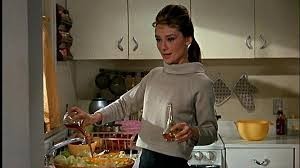
I always liked her more casual look in Breakfast at Tiffany’s, especially the pigtails
Thick is a word I think is particularly fitting. It seems best-suited to describe the situation. My flesh and skin and muscles are wrapped around big bones. This is good in many ways. I can’t think of a single woman in my family who’s ever broken a bone, and it’s not like we’re delicate creatures who haven’t tried. The women in my family worked on farms and rode horses and played sports without ever breaking anything worse than a toe. That’s what big bones will do for you.
A body like that will never look like Audrey Hepburn. I have a silhouette for sure, but it’s, well, messy. Chaotic. Convoluted. Things stick out and not always in the “right” places. It’s really only in the last year or two I’ve decided that I don’t hate my body. This is somewhat ironic, as I’m probably heavier right now than I’ve ever been. Oh, well.
I love Audrey Hepburn’s body. I love Robin Wright’s body. I like watching the way they move. I like wondering about how their bodies shaped the kind of women they were and are. But I’ll keep my own bones, thank you, and all the flesh they’re wrapped in, too.
I like wearing tight t-shirts with a design across the chest and seeing the way my boobs distort the shape. I like the momentum my hand gains when I run it along my waist and out to my hip, like zooming down a ski jump and going airborne. I don’t mind the feeling my ass gives me sometimes, like there’s someone back there following me.
So that’s what I’ve been thinking lately. I’m forty-two and I don’t have time to waste wanting anyone else’s body anymore. I’ve got better things to do.
*I have no idea if it’s actually easier to find clothes for a body like Audrey Hepburn’s. It might not be. I don’t know whose bodies fashion designers have in mind, but sometimes I suspect they are not the bodies of human women at all.
March 1, 2016
Key West, Day One

Things we have eaten
How do you travel and what do you travel for? When I was younger, I thought traveling would make me happy. Then I realized you take yourself with you wherever you go. It’s harder than you think to leave misery at home, so best to get rid of the misery before you leave,
One of my favorite things about Key West is watching how other people travel. It’s a prime location for people-watching. Who’s having a good time and who isn’t? Who brought their misery with them? Who’s local and who’s a touron (a word my husband discovered in a memoir of Key West, a combination of tourist and moron)? How long has that marriage lasted and how much longer does it have left in it?

Things we have drank
This is our third year coming to Key West and the places now are layered with memories of people we watched. This is the restaurant where we had to listen to the obnoxious motorcycle woman from Wisconsin. Here’s the bar where a man came in and tipped everyone with $100 bills. Here’s the older couple at the coffee shop, late afternoon, who don’t talk to each other. She picks at her hands while he stares at his phone. As Jason Isbell would say, they’ve got nothing left to learn about their hearts.
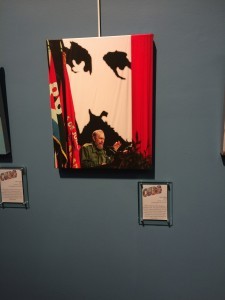
Things we have seen
Travel can be an exhausting endeavor putting relationships through a crucible. Things must be done and seen. Eaten and drank. Items must be checked off lists. If you don’t work hard at it, what will you have to show in the end? As it is in every area of life, it’s very hard to just be.
What have we done in our first two days in Key West? Things. We have done things.
February 28, 2016
6 reasons to love Marvel’s Agent Carter
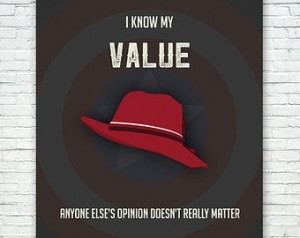 I’m late to the game and not yet all the way up to speed (I have three more episodes in season 2 to watch), but here are some things that are so great about Agent Carter and make this show so (sadly) unique:
I’m late to the game and not yet all the way up to speed (I have three more episodes in season 2 to watch), but here are some things that are so great about Agent Carter and make this show so (sadly) unique:
Very little cleavage. When Peggy Carter wears something that reveals her boobs, there’s a reason, and it doesn’t happen very often. The whole idea that female superheroes are superheroes mainly because they have very large breasts gets so tiresome. Agent Carter dresses like what she is–a woman trying to succeed in the post-WWII version of a man’s world. For this nod to historical reality, I am so very grateful.
Very little female spy as seductress. Maybe twice has Agent Carter used her “feminine wiles” in the spying game. Mostly, she’s just smart and kicks people’s asses. Even her nemesis spy, Dottie Underwood, doesn’t do a lot of seducing. Lo and behold, women can be spies in ways that don’t involve them spending all their time making bedroom eyes.
Relationships between women and men that are not romantic or sexual. Most of the time in TV and movies, if you see an attractive man and an attractive woman on the screen together and they’re not related by blood (and sometimes, even if they are, yuck), you can assume that they’ll either think about having sex with each other or have sex with each other. In my experience, this not how the real world works. I interact with many men who I do not think about having sex with or have sex with. Peggy and Mr. Jarvis are friends, even though they are both quite attractive. Peggy and Howard Stark are friends, again, even though they’re both lookers. The biggest question men like Howard Stark and Mr. Jarvis ask themselves is not, “How can I get Agent Carter in bed?” but, “How can I help her and earn her respect?”
Real conversations about racism, sexism and able-bodied-ism. I don’t want to give a whole lot away, but you have to love a show that even though it’s set in a historical period where the chances of a black scientist were rare, they chose to make a black scientist a major character. What’s the excuse of all the other shows set in 2016? Introducing Jason Wilkes allows the show to have all kinds of conversations about racism and opportunity in post WWII America. Agent Sousa’s character brings us face-to-face with the reality of the thousands of disabled veterans who came back from the war. It makes sense that Agent Sousa and Peggy or Jason and Peggy would be drawn to each other as they all know what it’s like to be under-estimated. Rather than dance around the real-world fact of racism, sexism, and able-bodied-ism, the characters in Agent Carter have actual conversations about it. Yes, this is a thing. It exists.
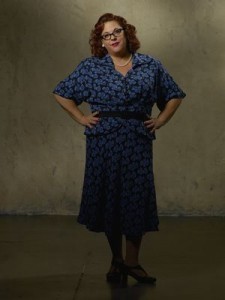
Rose Roberts!
Rose Roberts. No one wanted to let Agent Carter out into the field in season 1. She knows what that’s like. There’s a moment in season 2 that’s very much like the end of Buffy–share the power. We are all slayers. Peggy brings everyone out into the field, including Rose Roberts, the husky secretary who proceeds to kick some serious ass and likes it. In that moment, Agent Carter as a show suggests that maybe the real super-power is to empower others.
A good super-hero. I get the tortured super-hero thing. It’s hard being Superman or Batman or Wolverine. Whatever. But does every super-hero have to be so tortured and flawed they end up an asshole? Peggy’s not particularly tortured. She is definitely not an asshole. An enemy tries to find a dark secret from her past to blackmail her with in season 2. He shows her the folder. She gives him a look like, “Dude, what’s your problem? That’s not true.” In the moment where the twisted super-hero would be brought to his knees by his ugly past, Peggy just suggests to the guy that maybe he should be better than that. Maybe it’s because she’s English, I don’t know. Over and over she does the good thing. The really good thing. When other people take credit for what she’s done, she doesn’t really care. In the famous quote from the end of season 1, she tells Agent Sousa, plain and simply, “I know my value. Anyone else’s opinion doesn’t really matter.” What a completely revolutionary thing for a super-hero, let alone a woman super-hero, to say.
December 31, 2015
My year in writing
2015 has been a year of contrasts where my writing life is concerned, with some great accomplishments and excitement alongside a lot of reflection and re-thinking. Here are some of the highlights:
My Chapbook!!!
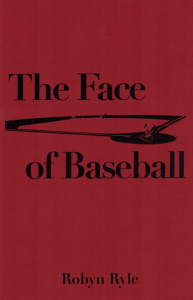 Here’s the excitement and accomplishments. In November, my chapbook, The Face of Baseball, from WhiskeyPaper Press came out. Leading up to the release date, I wasn’t sure how to feel. I’m the kind of person who’s afraid of getting too excited about anything for fear of being disappointed. I kept saying to myself (and sometimes my husband), “It’s just a chapbook.”
Here’s the excitement and accomplishments. In November, my chapbook, The Face of Baseball, from WhiskeyPaper Press came out. Leading up to the release date, I wasn’t sure how to feel. I’m the kind of person who’s afraid of getting too excited about anything for fear of being disappointed. I kept saying to myself (and sometimes my husband), “It’s just a chapbook.”
But then a box full of the chappies came in the mail. I opened it up and held one in my hand. A whole little book full of my stories. It felt pretty great.
Chapbook reading and launch
Then I had a reading and launch at our local indie bookstore, Village Lights, and that was even better than great. There was beer and peanuts and crackerjacks to fit the baseball theme. Friends and neighbors trickled in and out. I read my words. I told stories. I saw people’s faces. It was intimate and lovely and perfect.
Submitting sabbatical
Starting in June, I took a sabbatical from sending stories out to journals or magazines. It’s the end of December, now, and the sabbatical hasn’t ended yet. I can’t say when I’ll start sending things out again. There’s an excitement to submitting stories. But I find myself thinking more about how it all fits into the larger picture of my writing life. I’ve been thinking a lot, specifically, about who I’m writing for…
Finding an audience
I always knew that I wanted to write about small town life. My chapbook and the reading made me realize that I also want to write to small town life. I want to write for those people, my friends and neighbors. I want to write stories that people in Madison might enjoy. I want them to be able to see themselves in the characters and the settings. I want them to laugh and smile. I don’t want to just write about my community. I want to write for my community. I think there’s a big difference there that takes some figuring out.
And so?
For a long time, I thought what I wanted most from writing was to have a novel published. To get an agent and sign a book deal with a major publisher. That was the end game.
Here’s what I realized this year. I could maybe stop writing right now. Stop sending out stories. Stop flirting with a short story collection. Give up on that whole novel thing. Never query another agent again.
What I have already might just be enough. Writing the stories in my chapbook and reading them to folks. Being able to talk about my writing with people in my town. Having writers who I admire read and enjoy my work. That all feels pretty good. I could be done and that’s a very nice thing to feel. I am savoring the hell out of this moment for once.
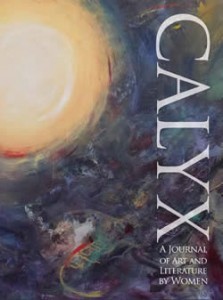 Will I stop writing? Probably not. I keep reading new things that make me want to get better. I think I would miss the challenge that is writing–figuring out how to use words in such a magical way. I’d also miss being part of a community of fellow writers.
Will I stop writing? Probably not. I keep reading new things that make me want to get better. I think I would miss the challenge that is writing–figuring out how to use words in such a magical way. I’d also miss being part of a community of fellow writers.
But what I hope for from the new year is to start writing from a different sort of place. I envision writing from a place of contentment, rather than yearning, even though I’m not sure if that’s possible. Still, it seems worth a try.
Coming events
The title story from my chapbook, “The Face of Major League Baseball,” will be published in CALYX Journal, along with other great stories and art, including six images from Nona Faustine’s photo series, “White Shoes”. You can buy a copy here.
My best books of 2015 review article will be coming out in The Ryder magazine, online and in print, at the first of the year.
My essay, “How to Preserve Food for the Winter,” will be available in the print edition of Little Fiction/Big Truth’s Nomfiction food anthology in April of 2016. You can still pre-order copies here.
My story, “How to Identify Birds in the Wild,” will appear in the Among Animals anthology from Ashland Creek Press in 2016. More details to come.
December 7, 2015
Madison Monday: A perfect place to be a writer
Last Friday night I had my reading and book launch for The Face of Baseball, my chapbook of linked short stories from WhiskeyPaper Press. As promised, there was beer and peanuts and, extra bonus, Crackerjacks!
It was a small, rotating crowd of friends and neighbors. I read in waves and in between we drank beer and talked and hatched great plans for the future of the arts in Madison.
Writing can be a lonely thing. You have to make an exit from the world around you in order to write. You have to live inside your head for extended periods of time. There’s community, too, sharing the pains and frustrations, as well as the joys with other folks who have been down that road.
But unlike performing arts, you don’t often get to interact with your audience as a writer. You imagine who they might be, but you can’t watch their faces as they read your words. I’ve often envied musicians for the immediacy of their art form. They perform their writing. They create collective moments with their words and notes and then they participate in those moments.
 I guess a reading is as close as you get to that as a writer. For the first time, you get to be in a room with your words and other people experiencing them. There’s something pretty special about that.
I guess a reading is as close as you get to that as a writer. For the first time, you get to be in a room with your words and other people experiencing them. There’s something pretty special about that.
All the stories in this chapbook are set in Madison. They are small town stories about small town people. The stories are sometimes funny and sometimes sad. To be able to read them in a room full of people who love and support me was simply an amazing thing.
It’s easy to think that the best places for writers to live are big cities—Chicago or New York. Living in those places, you’re closer to the power nodes of creative life—publishers and agents and magazine editors. If you have a reading there, maybe someone important will show up. Maybe not.
I know I wouldn’t trade the little roomful of people who showed up at Village Lights Bookstore Friday night for anything. I know that writing stories to those people and for those people is more than enough for me.
You can buy a copy of my chapbook online, here, or at Village Lights Bookstore in Madison.
November 30, 2015
Madison Monday: Honorary bookseller for a day
This Saturday, I had the honor of being bookseller for a day at our local indie bookstore, Village Lights. The Indie Bound tradition started in 2013 with Sherman Alexie and involves authors all around the country selling books on Small Business Saturday to show their love for independent bookstores. You can check out the map of all the events here.
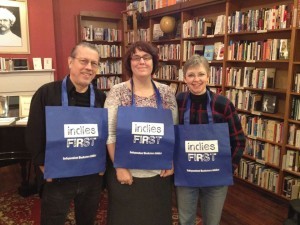
At Village Lights with Nathan and Anne
You’d think given the wide range of jobs I’ve occupied, bookseller would have made the list. I’ve pierced ears in a mall (even though my ears were and remain un-pierced), sold greeting cards, worked on a produce farm, and waited tables.
The first independent bookstore I remember going to was Lemuria Books in Jackson, Mississippi. It’s a beauty of a store, if you’ve never been. There are always a ready supply of signed books by amazing Southern authors who’ve come through to do readings. Going to college in Jackson, I sometimes had tenuous connections to the people who worked at Lemuria. I knew someone who knew someone who worked at Lemuria. To work at Lemuria was to be a kind of rock star, and maybe that’s why I never worked in a bookstore—I didn’t think I could ever achieve those lofty heights.
Working for a day at Village Lights did nothing to disabuse me of the notion that booksellers are rock stars, only rock stars of the incredibly hard-working variety. Working in retail, even if you’re selling books, is not an easy thing. After just four hours, I went home and collapsed on the couch. As a professor, you perform in front of a “public” in short, concentrated bursts. As a bookseller, you’re on for hours at a time. I don’t want to over-romanticize being a bookseller. People are weird and shitty and stupid sometimes, just like they are in any job.
But sometimes you see how excited people are about a book. Or books in general. One woman was with her husband, picking out picture books for her grandchildren. “She’s the reader,” he said, a note of pride and maybe bafflement in his voice. She nodded as she dug in her purse. “I may not go places in real life,” she said. “But I go places in my head.”
I watched people wander around the store, picking up books until their arms were too full. If they were in groups, they’d ooh and ah over each other’s stacks. People would buy one book and then come back for another before they got out the door. To help people find a book has to be some of the most satisfying match-making you can do. If you want to feel hopeful about the world, go watch people buying books.
Of course, as a writer, I appreciate independent bookstores. Who else would put my tiny little chapbook up on the counter for people to buy and plug it every opportunity they got? Independent bookstores are tireless cheerleaders and supporters for artists of all kinds—writers, painters, musicians. They are ground zero for a vibrant art community in any city or town.
Probably the best moment of the day was watching one enthusiastic young women buying a stack of books. She bounced up and down at the counter waiting for the bag of books to be handed back to her. “My books,” she said, her hands reaching out for them.
Yes, I thought to myself, that’s how it feels. You gather a stack of books and hand them over to buy. You can’t wait to have them back. To open up the covers. To run your fingers across the pages. You want everything and everyone else to go away so you can sink into that world inside. That’s the magic booksellers trade in.
This Friday, I’ll be back at Village Lights for the official launch and reading for my chapbook, The Face of Baseball, from WhiskeyPaper Press. I’ll be there 6-9 with baseball stories, beer, and peanuts. Special guest star David Loehr will be there, too, giving a baseball-inspired sampling of his Radio Theater and Revue.
November 9, 2015
About The Face of Major League Baseball (and my dad)
My story, “The Face of Major League Baseball,” is out now in a chapbook from WhiskeyPaper Press along with two other short stories. The story will also appear in Volume 28:2 of CALYX Journal. I’m very excited about both of these things.
 The chapbook is called The Face of Baseball and includes three linked short stories. All the stories involve baseball in some way. They hover around the lives of three women—Jean, her mother, Lorena, and Aunt Bea. For these women, baseball is a filter that helps them make sense of the world. It connects them to each other. Like all the best things, baseball brings them great joy and their fair share of pain. I am so happy thinking about these stories and these women being out there for people to read. You can buy the chapbook here, and if you wait until November 14, there’ll be a giveaway on Goodreads, too.
The chapbook is called The Face of Baseball and includes three linked short stories. All the stories involve baseball in some way. They hover around the lives of three women—Jean, her mother, Lorena, and Aunt Bea. For these women, baseball is a filter that helps them make sense of the world. It connects them to each other. Like all the best things, baseball brings them great joy and their fair share of pain. I am so happy thinking about these stories and these women being out there for people to read. You can buy the chapbook here, and if you wait until November 14, there’ll be a giveaway on Goodreads, too.
CALYX Journal was the first magazine in the U.S. to publish the art of Frida Kahlo in color. They’ve published women writers like Barbara Kingsolver, Sharon Olds, Julia Alvarez and Natalie Goldberg. That my words get to go in a journal where those women’s words and images have been—it’s more than amazing.
As you can see below, I’ve been waiting to write about this story for a long time, so here’s a bit more about “The Face of Major League Baseball.”
Fast Facts
First draft written: April 2013
Number of drafts written: lots
Number of rejections: 18
From submission to publication: 2 years
The idea
There really is a pre-season Twitter contest to decide who is the face of major league baseball. The year I wrote the story, Joey Votto won. I watch a lot of pre-season baseball shows with my husband and they were talking about the contest. I had just joined Twitter, and so, of course, I had to vote for Joey Votto.
My daughter had been wanting to get on Facebook for at least a couple of years, and we wouldn’t let her. So I thought about what it would be like if you were a kid who wanted to vote for your favorite player, but couldn’t. What would you do?
All that was happening, but mostly what I thought was that I wanted to write a story about baseball. I wanted to write a story about something I love and something that’s connected deeply for me to family and home. I’d been thinking at the time about that idea—writing love rather than despair or cynicism or sadness. What kind of story would it make? That’s where I started on a very visceral level. I love baseball and I love my dad and the two of those are kind of inseparable. That’s what this story is about for me.
The first line
Then the first line came to me—“Joey Votto should be the face of major league baseball.” Emphatic, the way kids are. This is how the world should be—no questions, no quibbling, no intellectual discussion. The voice of a kid who feels left out and confused, but there’s this one certainty. Joey Votto should win this contest. That was what Jean believed deep down in her heart of hearts.
There were times when folks told me the real beginning of the story was later. They pointed to other lines, and I could see what they were talking about. The opening few sentences of the story introduce a lot of characters, a lot of names, and generally that’s a no-no when starting a story. But this line was where it started for me, because how often do you get to say something with such conviction? I’m an academic and a sociologist. I spend my life thinking about how the world is socially constructed and truth might be relative.
But all that goes out the door when it comes to sports. The Pittsburgh Steelers are evil. Period. The Reds should play the first game of the season every year. You cannot just pick and choose which team is yours—it has to be rooted in geography or family. Joey Votto should be the face of major league baseball. These things are unchanging and true. That’s the kind of certainty Jean feels.
The place
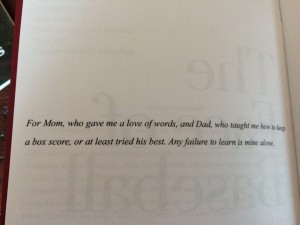 If I was writing into love, which is kind of how I thought about it, I had to put Jean someplace I love. But she had to still be in Reds territory, too. The great thing about sports and teams is that they stretch out. The Cincinnati Reds don’t just belong to Cincinnati. They belonged to me growing up across the river in Kentucky and they belong to folks down the river in Indiana. It was completely plausible that Jean could be a Reds fan and live in Madison. So I put her in Madison.
If I was writing into love, which is kind of how I thought about it, I had to put Jean someplace I love. But she had to still be in Reds territory, too. The great thing about sports and teams is that they stretch out. The Cincinnati Reds don’t just belong to Cincinnati. They belonged to me growing up across the river in Kentucky and they belong to folks down the river in Indiana. It was completely plausible that Jean could be a Reds fan and live in Madison. So I put her in Madison.
When her and Deven get off the bus, they’re getting off the bus on Main St. When they’re in the library at the computers, I know exactly where they’re sitting. I know which house Jacie Green lives in.
The only thing in the story that’s not true to Madison is that Jean catches the bus to get to the game in Cincinnati, and you cannot catch a bus in Madison. I did find out, however, that in one Indiana town, you catch the bus at a Burger King. There was a scene that got cut in which Jean waits at the Burger King for the bus. I loved the scene, but the story was too long, so it had to go.
About small towns
So, this is my dead horse and I will just go on beating it. Life in small towns is not as homogeneous as people think. We’re not all the same. There’s diversity here, though it might be harder to see. I don’t think that in order to write about a diverse world you have to set your stories in a city. You just have to pay attention to where you live. I think there are quite a lot of people in cities who don’t have to work too hard to never encounter anyone who’s different from them. In a small town like Madison, that becomes a bit harder.
This is good and bad. I’m not saying small towns are utopias. Bad things happen here. Bad things have happened here lately. It’s much easier for me to live in Madison as a straight, upper middle class, white woman. But it’s easier to live almost everywhere in the U.S. as a straight, upper middle class, white person.
I guess what I would say is that I believe in the power of writing to reveal and perhaps create a different kind of reality. When I write about small-town life, that’s part of what I’m trying to do.
My dad
I wrote this story for Joey Votto and my dad, but mostly for my dad. When I think of baseball, I think of my dad listening to Reds games on the radio. Or trying to teach me to keep a box score at the game. Playing catch with me and telling me to suck it up when the ball hit my chest and I couldn’t breathe.
In “The Face of Baseball,” Jean’s dad is gone. He’s not a good father, so you might wonder what that has to do with my dad. Sometimes I find it easiest to write about the things I love by imagining they’re already gone. I wrote a series of stories about Madison in which the town has been destroyed by an apocalypse. I took Jean’s dad away from her and imagined the gaping hole it might leave in her life.
I could see that hole, feel its edges, by thinking about all the space in my own life that my dad fills. Who would I be without my dad, telling me I could do whatever I wanted, but it was going to take some work, so I better stop messing around and get to it. Maybe the kind of girl who becomes obsessed with Joey Votto.
The best
I think this might be the best story I’ve ever written. I love these characters. I love the world. I love the pluckiness of Jean. I love the way she’s surrounded by people who love her. I love that even when she ventures out on her own into the world, she encounters kindness. In adding two other stories for the chapbook, I had a lot of material to draw on. I know Jean and Lorena and Aunt Bea really well. There’s a lot about their lives that didn’t make it into the pages of the chapbook.
I’m so happy they’re in the world. I hope other people love them, too.
The events
The big launch for the chapbook will be at Village Lights Bookstore, on December 4th. I’m also honored to be this year’s honorary bookseller at Village Lights on Small Business Saturday, November 28, from 11-3.
October 21, 2015
Bringing the beach home with you

The all-important ibis
I spent the last five or six days on the beach in Florida on an extended fall break. In the process, I may have figured out the key to happiness. This is probably not surprising.
The key to happiness does not involve social media or faculty meetings. It does involve lots of good books and family. There’s very little checking of e-mail or, in fact, turning on your computer at all. There are lots of walks on the beach, preferably while holding hands. You may need to spend several hours daily in a chair, watching the waves and thinking of nothing. If you can at all stand it, wade out into the ocean and float on the waves. If unpleasant thoughts arise, don’t be afraid to disappear inside a book, a conversation, or an ice-cold gin and tonic. Any of these will do.
It helps to go someplace that is both magical and familiar. I personally find the presence of ibises helpful, as well as terns that glide over the water so close you can’t help but reach your hand up to try to touch them as they pass. Never underestimate the simple pleasure of finding sea shells rolling in the surf at your feet.
 Stay as long as you can, but when you get back, don’t forget the things you’ve learned. Step into your living room and admire the afternoon light through the windows. Walk along the river. Take time to make a tomato sauce that simmers on the stove for hours. Go slow. The important things will wait.
Stay as long as you can, but when you get back, don’t forget the things you’ve learned. Step into your living room and admire the afternoon light through the windows. Walk along the river. Take time to make a tomato sauce that simmers on the stove for hours. Go slow. The important things will wait.
October 4, 2015
On (sort of) not writing
We’re a month into the semester, and I’m still not submitting any new writing. I’m down to nine pieces in my queue. I’m kind of excited about letting that number go down to zero for the first time in two years, though there’s no telling how long that’ll take. Here’s what I’ve been thinking and doing in my (sort of) writing-less life:
– I’m not submitting and I’m sort of not writing, either. Of course, I’m writing right now. Blogging is partly how I got back into writing in the first place. It’s a nice kind of writing to do when you can only steal small moments of time. It’s an easier, conversational kind of writing.
– I’m also revising my sociology of gender textbook. It’s a big revision, going through chapter by chapter. I’m updating information, but also cleaning up the writing. The good thing about this process is realizing that in the six years or so since the first edition, I’ve become a much better writer. I had a tendency to repeat myself a lot, I guess for the sake of clarity. I just felt the need to say the same thing over and over again. It was like I was stuck in a reiteration rut. You get the idea.
– There are moments when revising a gender textbook is really interesting. You learn new things as you go along. Here’s one interesting, random factoid—there are average differences in bone mass and rates of osteoporosis between women and men. Generally, women have lower bone mass and are more likely to develop osteoporosis as they age. But biology isn’t destiny. Within Orthodox Jewish populations, girls have better bone mass and lower rates of osteoporosis than their brothers. This is because Orthodox Jewish boys are expected to spend a lot of time sedentary, studying religious texts. The lack of activity at a young age affects their bone development. There’s an increasing sense that biology is not hard-wired, but malleable and shaped in important ways by social life. Learning those kind of facts is interesting to me.
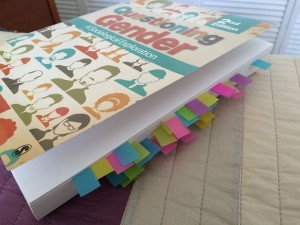
Marking all the places that need some attention for the next edition.
– There are other moments when revising a gender textbook is kind of boring. Sometimes it’s boring in a comforting way. It’s doing research. Lining up citations. Finding statistics. Making sure the terms all line up.
Other times revising a gender textbook is boring in the way all writing can be boring sometimes. This week, I got stuck in Chapter 3 trying to figure out how to talk about gender theories from a global perspective. I spent at least an hour trying to put together two sentences. That was as far as I got, and that never feels good.
– The thing about revising a gender textbook is that there are people out there who are going to read it. Students like mine. There’s a built-in audience and a lot at stake if you care about your topic, which I do. I wrote the textbook in the first place not because I’m some kind of expert on gender. I didn’t feel like an expert on anything when I sat down to write the book, though I feel much more like one, now.
I wrote the book because I know that I teach a good sociology of gender class. I’m a good teacher. Shouldn’t that translate into a good textbook? I hope so. What’s at stake for me in the textbook is trying to share the experience students have in my class, which I think is a good one, with as many students as possible.
– I miss other kinds of writing. My mind drifts to stories and essays I might write. My husband is making his way through the draft of my mystery novel. I think about how I’ll revise it. I think about the next thing I’d like to write. I think about the characters in my chapbook, The Face of Baseball.
– It’s a nice feeling, this missing. Working on the textbook is restful. It’s a vacation from all the uncertainty that comes with other kinds of writing. When I finish the revisions, they’ll go to the publisher and then they’ll become a new edition. At the end, I’ll hold a book in my hand and other people will read it. Certainty like that has been rare in my life as a writer so far.
It’s also good to know that eventually, I’ll get back to the other stuff. The writing that has no definite home waiting for it. It’s good to give yourself the space to miss something every once in a while.



